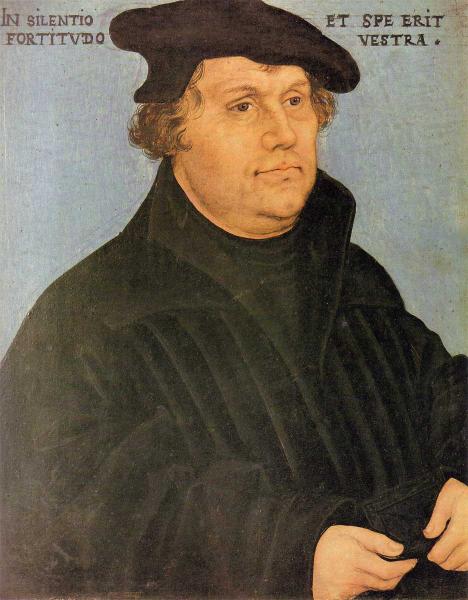Reading Luther


If reading about Luther’s life is essential as a means of orienting you to understanding his theology, the next thing is to read that theology for yourself. If you have Latin and German and access to a decent theological library, then the Weimar edition of Luther’s works is an option. If you lack those languages but still have access to a library or to Logos Bible Software, then the Philadelphia edition of Luther’s works is also very useful. But with the critical edition of Luther running to over 100 volumes and the Philadelphia edition being not far short of that, the question of where to begin is important and it may well be better to start with a volume of selections.
Two classics of this genre are those by John Dillenberger and Timothy Lull. I prefer Dillenberger but Lull is now the standard textbook which I use in my Luther class.
Tappert’s Letters of Spiritual Counsel is an old classic, focused on the pastoral Luther.
Of all the 1517-2017 anniversary projects I have seen, the publication of a six volume set from Fortress Press entitled The Annotated Luther is the one that has excited me most. The six volumes are: The Roots of Reform, Word and Faith, Church and Sacraments, Pastoral Writings, Christian Life in the World, and The Interpretation of Scripture. I have been buying volumes as they come out and have not been disappointed.
The texts in these volumes are often light revisions of earlier translations but what makes the set so delightful (in addition to the superb production standards) are the new introductions and marginal notes. Much of Luther has to be set against a technical medieval theological background in order to understand him. That was, after all, his own background and his Reformation theology is developed in relation (negative and positive) to his medieval training. Even the fabled Ninety-Five Theses contain many references which require knowledge of the theology of the late Middle Ages. This set (of which four volumes are already available) offers excellent commentary on each text.
Once you have your Luther books, what should you turn to first? Here is a brief suggested reading list:
Early in his reforming career Luther produced three sets of theses for disputation that show the rapid development of his thought between 1517 and 1518: The Disputation Against Scholastic Theology (September, 1517); The Ninety-Five These Against Indulgences (October, 1517) and the Heidelberg Disputation (April 1518), in the latter of which he developed both his notion of the bondage of the will, the antithesis of Law and Gospel, and the distinction between the theologian of glory and the theologian of the cross.
The three great treatises of 1520 (The Freedom of the Christian Man, The Bablyonian Captivity of the Church, and An Appeal to the German Nobility) lay out in detail Luther’s program for ethics, sacraments, and politics. Readers should also look at the later sacramental work, That These Words of Christ, “This Is My Body,” etc., Still Stand Firm Against the Fanatics (1527) to see how his earlier emphasis on Chrost’s promise is somewhat supplanted by an emphasis upon Christ’s presence under the pressure of the conflict with Zwingli.
On a darker note – the reader should also look at both On the Jews and Their Lies (1543), a notoriously anti-Jewish work which had an afterlife as propaganda in Nazi Germany and continues to find audiences on various racist and anti-Semitic websites today. But the text should be read alongside his earlier work on the Jews, That Jesus Christ Was Born a Jew (1523). I tell students all the time that the expected never needs explanation. It is the unexpected that the historian has to strive to explain. And this earlier treatise is very much an oddity because it is a relatively positive text about the Jews written by a sixteenth century Christian. The question about Luther and the Jews is thus not ‘Why did he hate them in 1543?’ since that was the conventional attitude. Rather it is ‘Why was he favorable towards them in 1523?’
The only works which Luther himself considered worthy of outliving him were his Catechisms and On the Bondage of the Will, his famous – and devastating 1525 riposte to Erasmus. I would not reduce his useful canon merely to those items but it is hard to argue that he himself had no highlighted the most important texts.
To these I would add two other works: the Lectures on Genesis, for their remarkable theology of the creative Word of God, and the late work On the Councils of the Church for its mature ecclesiology.
If you read all the above, you will have a good basic grounding in Luther’s thinking.
Next week I will suggest some books which discuss Luther’s theology.




